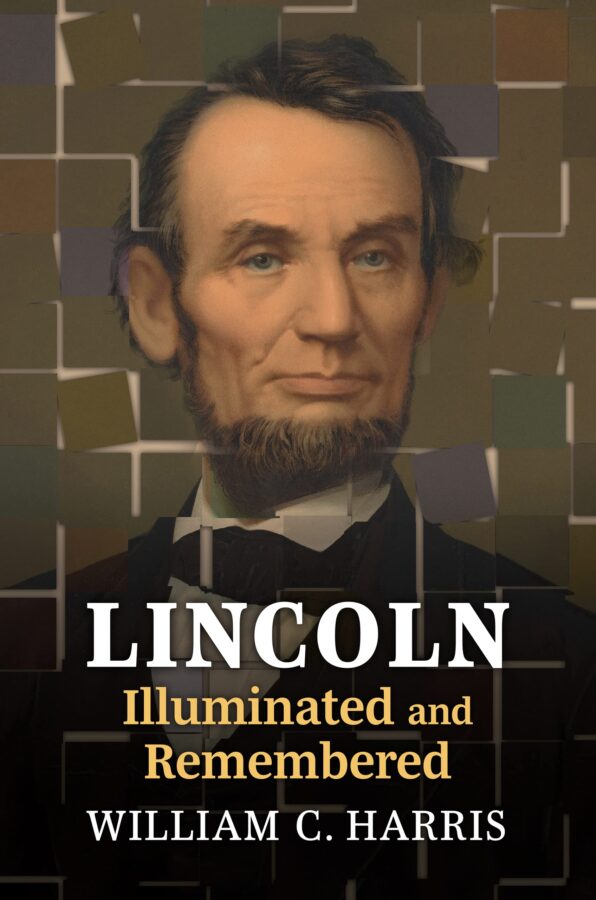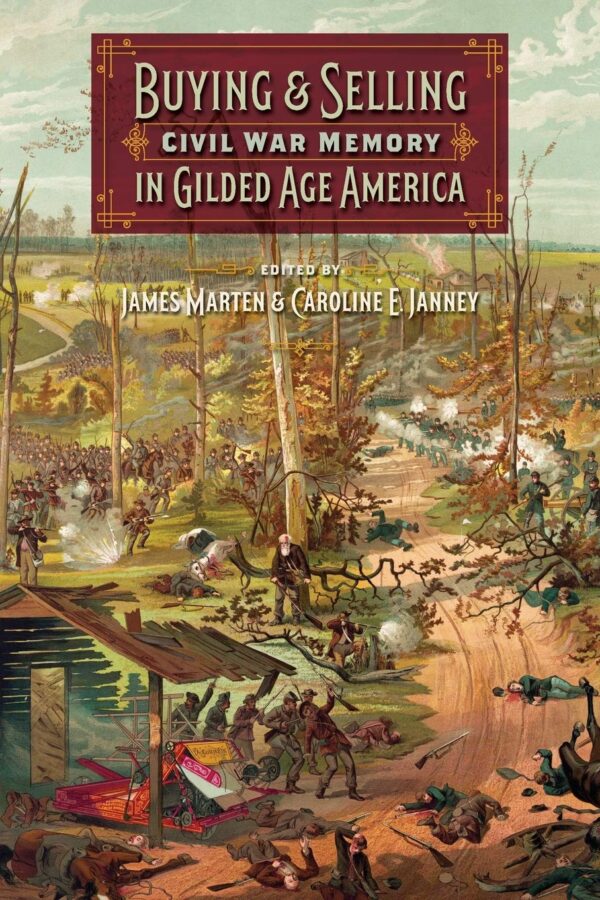Lincoln Illuminated and Remembered by William C. Harris. University Press of Kansas, 2023. Cloth, IBSN: 978-0-7006-3533-7. $44.95.
 Across a career spanning nearly six decades, historian William C. Harris has produced important books on virtually every facet of the sixteenth president’s life, ranging from his political ascent (Lincoln’s Rise to the Presidency [2007]) to his final acts (Lincoln’s Last Months [2004]). Among Harris’s most important contributions are careful studies of Lincoln’s relationships with loyal governors, the border states, the federal Congress, and wartime Reconstruction governments. Now, at the sprite age of ninety, Harris delivers this collection of five original essays on various aspects of Lincoln’s career. As we have come to expect from Harris, these chapters do much to situate Lincoln in the context of his times. Taken together, the lengthy essays collected here extend the themes that have animated Harris’s body of scholarship—namely, Lincoln’s conservatism and unapologetic Unionism.
Across a career spanning nearly six decades, historian William C. Harris has produced important books on virtually every facet of the sixteenth president’s life, ranging from his political ascent (Lincoln’s Rise to the Presidency [2007]) to his final acts (Lincoln’s Last Months [2004]). Among Harris’s most important contributions are careful studies of Lincoln’s relationships with loyal governors, the border states, the federal Congress, and wartime Reconstruction governments. Now, at the sprite age of ninety, Harris delivers this collection of five original essays on various aspects of Lincoln’s career. As we have come to expect from Harris, these chapters do much to situate Lincoln in the context of his times. Taken together, the lengthy essays collected here extend the themes that have animated Harris’s body of scholarship—namely, Lincoln’s conservatism and unapologetic Unionism.
The first chapter supplies an admiring assessment of Lincoln’s leadership. While Harris concurs with those scholars who argue that Lincoln “grew as president during the war,” he nonetheless insists that many of the “political qualities” that made him such a successful president were “shaped before 1861” (31). Though Lincoln sometimes “struggled” in his role as commander-in-chief, he excelled in steering the ship of state, conceiving of his “relationship with Congress as a partnership” and “respect[ing] the traditional federal system of government” (32-33). Harris concludes the essay by hazarding his own answer to the war’s perennial counterfactual question: Lincoln, he writes, “would have been far more successful in managing the unprecedented demands of postwar reconstruction than his successor, Andrew Johnson.” Yet to this orthodox judgment, Harris adds a twist. The Fourteenth Amendment, the author reminds, was one result of Johnson’s intractable brand of Reconstruction. “If Lincoln had lived,” Harris asks, “would the Fourteenth Amendment have been introduced in Congress, would it have passed, and would it have been sent to the states for ratification?” (47)
In the second chapter, Harris argues that “Lincoln’s Mexican American War experience influenced his response to southern secession and civil war” (71). During his lone term in the U.S. Congress, Lincoln (ever a dutiful Whig) became an outspoken opponent of the U.S. War with Mexico. “Americans,” Lincoln came to believe, “should not be drawn into military conflicts for either partisan or dubious reasons” (70). Harris proposes that Mr. Polk’s War tutored Lincoln that “public opinion could not be wisely ignored” (70). Lincoln further learned that it was essential to clearly articulate the “purpose” of armed conflict—something he did with his stirring prose throughout his presidency (71).
Harris turns to the question of emancipation in his third chapter. Here, he foregrounds “Lincoln’s persistent though futile efforts as president to secure acceptance of a plan for gradual, compensated emancipation” (75). Lincoln believed that gradual, compensated emancipation (the remedy once prescribed by his “beau ideal of a statesman,” Henry Clay) would “bring about an early end to rebel resistance and save lives and money” (102). Yet Harris is quick to point out that Lincoln “would not have taken such a constitutionally questionable and political risky step” if he did not believe slavery to be “the great blemish on the republic” (102).
While the border states’ stubborn refusal to accept his gradual emancipation plan in March 1862 disappointed Abraham Lincoln, few wartime problems were more vexing than the work of rebel spies and guerrillas. In chapter four, Harris recalls the clandestine operations of the Confederate underground in Canada and the threat of sabotage and terror—subjects the author will treat at even greater length in a forthcoming volume on the notorious Confederate privateer, John Yates Beall.
In the fifth and final chapter, Harris recalls the life and public service of Wisconsin’s James Rood Doolittle, who became “the leading champion of the president in the Senate” (6). As Harris has argued elsewhere, the Republicans of the Civil War Congress were hardly united behind a single legislative program. Harris’s extended sketch of Doolittle amplifies the voice of a key conservative who returned to the Democratic Party during Reconstruction.
From the pen of a prolific and prize-winning scholar, these essays succeed in their stated goal of supplying “a better understanding of the unprecedented problems, pressures, and influences on Lincoln and his contemporaries” (6). Lincoln Illuminated and Remembered is an essential and thought-provoking addition to any Civil War library.
Brian Matthew Jordan is Associate Professor of Civil War History and Chair of the Department of History at Sam Houston State University. His most recent book, co-edited with Jonathan W. White, is Final Resting Places: Reflections on the Meaning of Civil War Graves (2023).

